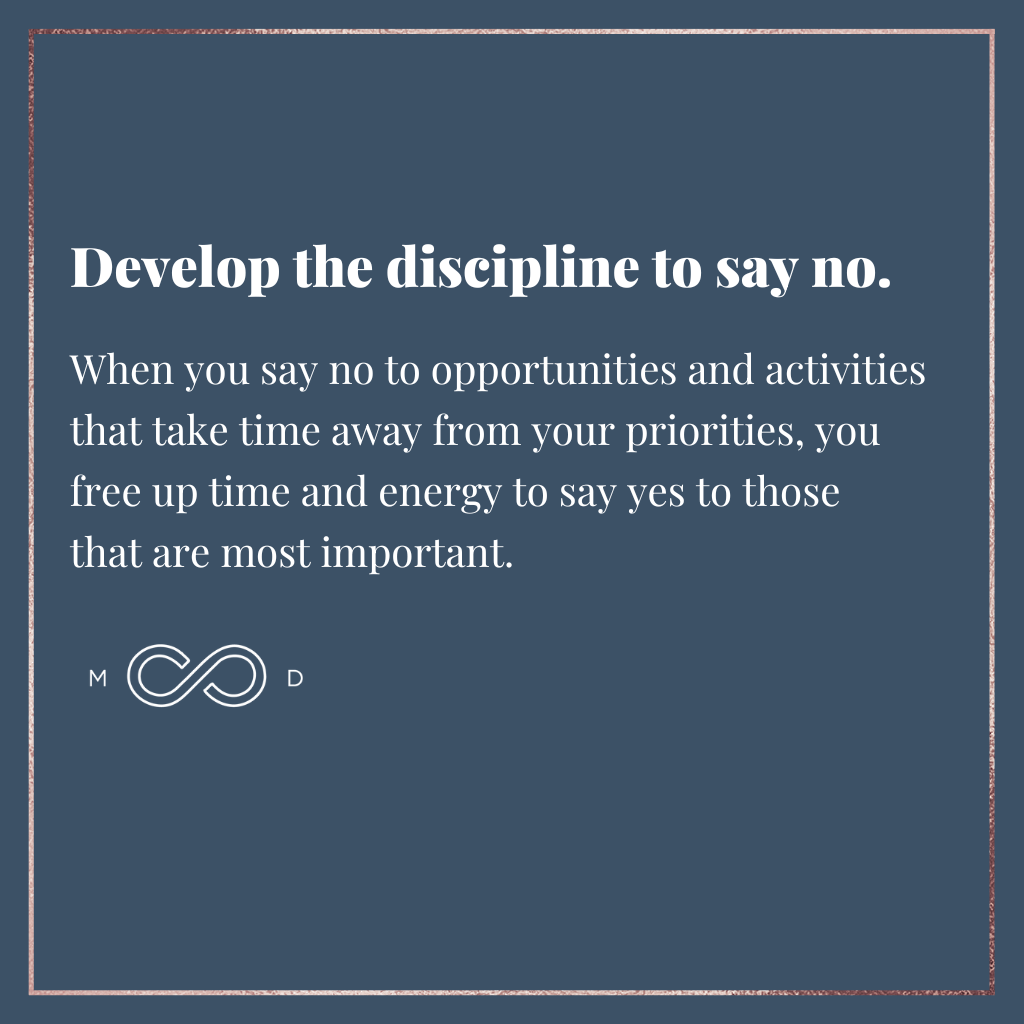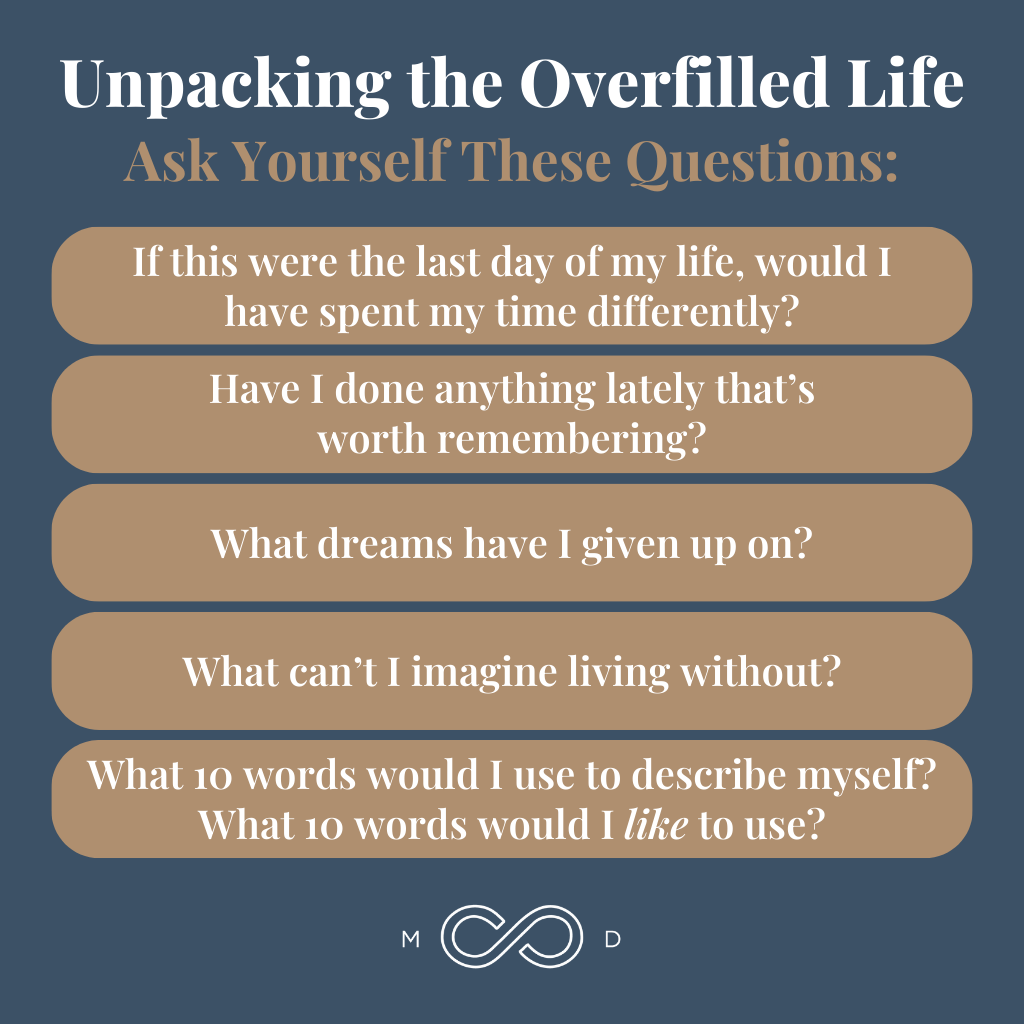Too much of a good thing isn’t just a saying. It’s a real danger.
We all want to fill our lives with good things, and highly successful individuals often excel at doing so. Yet, the refrain I consistently hear among such people is one of dissatisfaction and a lack of fulfillment. How is that possible?
In this case, good gets in the way of great.
It’s an unfortunate, but almost predictable, scenario: high-performers who accomplish so much, yet without a sense of purpose for it all. Instead, they’re continually pressing forward — one more deal, one more project, one more busy season — and it’s never quite enough.
They never arrive, and a sense of meaningful progress — and the fulfillment, satisfaction, and joy that stem from it — escapes them.
It’s no wonder studies have found that more workers are experiencing burnout now than at the height of the COVID-19 pandemic, or that significant percentages report cognitive weariness and emotional exhaustion as well as physical fatigue.
If this is your experience, you need to make a change — not only for your happiness but for your physical health as well.
Step 1: Identify Your Priorities
I’ll be honest: I’m still working on mastering the process of prioritization myself, but I’m well down the road to answering this all-important question:
How am I going to measure my life?
What’s your answer? Someday in the future, how will you measure what you’ve done or achieved and what you haven’t done or achieved? Where will your career factor into the equation? How about your family and relationships? What about your hobbies and the causes you support?
Mull this over for a while. Your answer will bring to light the pursuits that are most deserving of your time and attention. When you prioritize these activities, you’ll gain the fulfillment and satisfaction you long for.
While the answer is different for everyone, it’s interesting to note that a recent Pew Research study suggested that having a job or career you enjoy and having close friends are most important for a fulfilling life regardless of age or gender.

Step 2: Define Your Boundaries
A boundary is defined as a line that indicates or fixes a limit or extent. People often set boundaries in personal and professional relationships. In this case, I’m talking about setting boundaries with yourself.
Without boundaries, it’s difficult to maintain your priorities and achieve your goals. With them, it’s easier to focus your energy on the activities and pursuits that will bring you joy, fulfillment, and satisfaction. Here’s what has helped me:
Begin with the end: As I mentioned earlier, spending time exploring the deepest parts of who you are and what has meaning for you as an individual will go a long way toward identifying the activities and pursuits that will have the greatest impact on your life experience. Once you have that deep sense of clarity, define boundaries that allow you to focus more of your energy and attention accordingly.
Use these questions to help guide your discovery:
- If this were the last day of my life, would I have spent my time differently?
- Have I done anything lately that’s worth remembering?
- What dreams have I given up on?
- What can’t I imagine living without?
- What 10 words would I use to describe myself? What 10 words would I like to use?
Develop the discipline to say no: This is about enforcing boundaries with yourself. When you say no to opportunities and activities that take time away from your priorities, you free up time and energy to say yes to those that are most important. It might feel hard at first. Remind yourself that discipline is like a muscle; it gets stronger the more you use it.
Setting adequate boundaries can enhance your ability to exercise discipline. For example, I love cookies, but I’ve set a boundary for myself that doesn’t allow having cookies in my office. As a result, I never have to exert discipline to keep myself from eating them. Instead, I can direct that energy toward activities that pull me further down the path I want to pursue.

Focus on the Journey, Not the Destination
Your boundaries and discipline will never be perfect. This isn’t an exercise you master once and then forget about forever. Set aside that unrealistic goal and embrace the ever-expanding and evolving process instead.
As you improve your boundaries and exercise discipline, you’ll free up energy for the pursuit of the goals and activities that mean the most to you. By unpacking your overfilled life, you’ll achieve greater joy now as well as in the future.

Dr. Aaron Wenzel is a concierge physician specializing in the care of fast-moving entrepreneurs, executives, and public figures in the Nashville, TN area. Dr. Wenzel’s diverse life experience and extensive training in family medicine, emergency care, nutrition, and hormone replacement therapies give him the unique platform to provide unmatched care for his patients.






